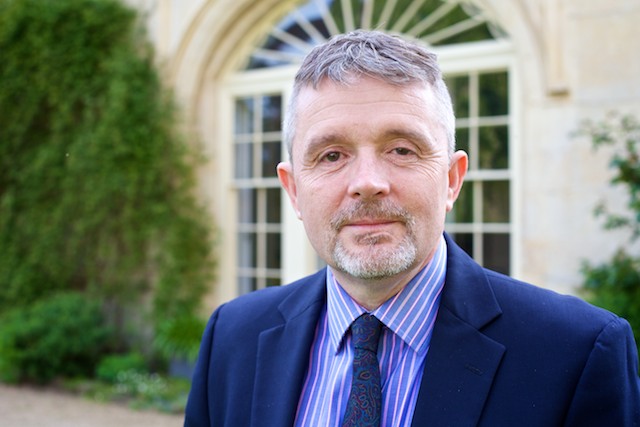On Tuesday 8th September the Church of England, represented by the Bishop in charge of Safeguarding, Jonathan Gibbs, declared that the Dean of Christ Church had behaved appropriately in all areas of safeguarding. The enquiry into his behaviour by the National Safeguarding Team was at an end. For a summary of the overall case, consult an earlier blog.
Is this cause for rejoicing? Yes, if we are able to disregard the oceans of stress for Dean Percy and his family, as well as the substantial expenditure of time and money that have been a part of this process. There is no need for me to rehearse all the facts of the affair, but suffice to say that a dispute has been going on since 2018 between Dean Percy and some of the senior members of his college. This has become, apparently, very bitter. There have been two stages in the formal part of the complaint. The first resulted in a judge-led enquiry which declared the Dean not guilty of the twenty seven charges against him and then there was the Core Group process initiated by the NST. The ‘not-guilty’ conclusion of this latter process should result in a restoration of the status-quo but that is unlikely for the time being.
Christ Church issued its own statement on Tuesday 8th which was somewhat cold, factual and entirely without any regret for the damage that their own institution has suffered through the use of these processes against their own Dean. Damage comes in various forms and Christ Church has suffered greatly as the result of spending eye-wateringly large amounts on lawyers and reputational management companies. The sum of between £2 to £3 million has been mentioned but the effect on its reputation with its own alumni has been equally devastating. Oxford colleges are always anxious to encourage their past members to leave money in their wills. Who will want to leave anything to an institution that persecutes its own head, especially, as in this case, the accusations of evil doing are shown on two occasions to have no substance?
The second institution to suffer damage in the aftermath of this case is the National Safeguarding Team (NST) of the Church of England. The first NST had been formed in 2015 by the Church in the aftermath of the sentencing of Peter Ball. In its early days under the leadership of Graham Tilby, it was an ‘empire’ of thirteen and a half full time employees. Graham Tilby moved on after a less than impressive performance in front of the IICSA hearing. Quietly, a completely new team under the leadership of Melissa Caslake appeared in 2019. The current team is less numerous than the old but Caslake has so far retained the respect of survivors and Church leaders alike. Likewise, the new bishop with safeguarding responsibilities, Jonathan Gibbs, spoke with sincerity and conviction at the February 2020 General Synod and all seemed to be promising well for the future.
The NST became drawn into the Percy process because of an appeal from one or more of the Christ Church complainants, who believed that the Dean had a case to answer on church safeguarding grounds. The NST responded by setting up the core group process to look at the complaint.
March 13th 2020 was the date when the Core Group set up by the NST met in Oxford to discuss the complaint against Dean Percy. The meeting apparently did not take any minutes and was flawed in other ways. Two of the members had known conflicts of interest and were subsequently removed from participation in the group. Both of these members were among the complainants from the college. A further issue that weakened the meeting, was in ther fact that neither Bishop Jonathan nor Ms Caslake were present. Lord Carlile, in discussing the flawed processes in the Core Groups over Bishop Bell, complained strongly about the failures of continuity of personnel in the core group process. Unless the same people attended meetings, the processes of justice would be hard to maintain. These identifiable flaw of process in the March 13th meeting probably should have resulted in that meeting being declared null and void and a new meeting called.
The present exoneration of Dean Percy, in the announcement by Bishop Jonathan yesterday, may or may not have been the result of a further core group meeting. More likely it came as the result of a calm appraisal of all the facts of the case by two or three people at Church House who oversee the NST. Such decision makers will be among those who are feeling the heat of all the criticisms of the central Church from General Synod members, bloggers and ordinary members over the involvement of the Church in the Christ Church affair. I have laid out quite a number of these criticisms in earlier blog posts. But what should happen now?
Christ Church has its own battles to fight in its bid to restore its reputation and respect from its alumni and the wider public. I have nothing to suggest there. But I can offer a few thoughts to the Church of England. This venerable body has allowed its reputation for just and fair dealing to be sullied by the faulty use of core groups and the way that survivors of abuse/ false accusation in general have sometimes been treated by faulty processes. Even after the exoneration of Dean Percy, we have many questions to ask. Although two members of the Percy Core Group were removed after the issue of a conflict of interest was pointed out, the wider public has the right to know how future blunders like this will be avoided and more transparent processes put in place. We would also like to know who made the decision to accommodate the ‘wily dons’ to launch the core group process in the first place. If the Church could come down from its place of secrecy, the culture that has done so much to weaken trust within the Church, the path might be open for a process of healing. This is what is now required for those who have suffered and have become alienated from church authorities by recent events. The Church authorities routinely seem to use legal processes to defend themselves as well as the devious manipulations of truth suggested to them by their reputation managers.
In a short space I want to try to describe the outline of what a Peace and Reconciliation process might look like in the Church and would make things right after the terrible mistakes of the Dean Percy affair. Although there are in the case financial considerations to be put right which will return to Martyn the vast sums expended on taking out legal defence, there are Christian things to be done as well. Martyn has been clearly wronged by the Church, whether by accident or deliberate malevolence. Both parties are Christian so there should be offered Christian solutions to the breakdown that has occurred. Lawyers, reputation managers and publicity creators clearly have no role in any peace and reconciliation process. Such skills have their place, but they do not inspire confidence that they are working for anything other than a defence of assets and reputation. Truth needs to be told by both sides, not with a view to protecting reputations, but with a single-minded simple desire to know and understand the truth of everything that has happened.
The Bible speaks about speaking the truth in love. Cannot Christian people come together within this fundamental, non-confrontational approach so that reconciliation and true forgiveness can start to take place? The first move should probably be made by leaders, in whose name Martyn has been made to suffer through a badly handled false accusation. Do not all Church leaders at heart have a longing for these values? The acting out of these values in the public arena would be a powerful witness both to the Church and to the wider society. Archbishop Tutu’s work in South Africa did an enormous amount to share the Christian message of reconciliation with the population of his country as well as of the world. Truth, peace and reconciliation are relevant not only to Christians, but all people everywhere. We are in many ways at a turning point in the history of the Church, thanks to the covid-19 devastations on the infrastructure. Cannot the Church accept as a challenge to do something really powerful which might reach countless people? We have before us the task of rebuilding trust between all abused people, represented by Dean Percy and the rest of the church, especially its leaders? Cannot new liturgies be written, acts of contrition be enacted, so that people everywhere can see the transforming power of Christian love?



